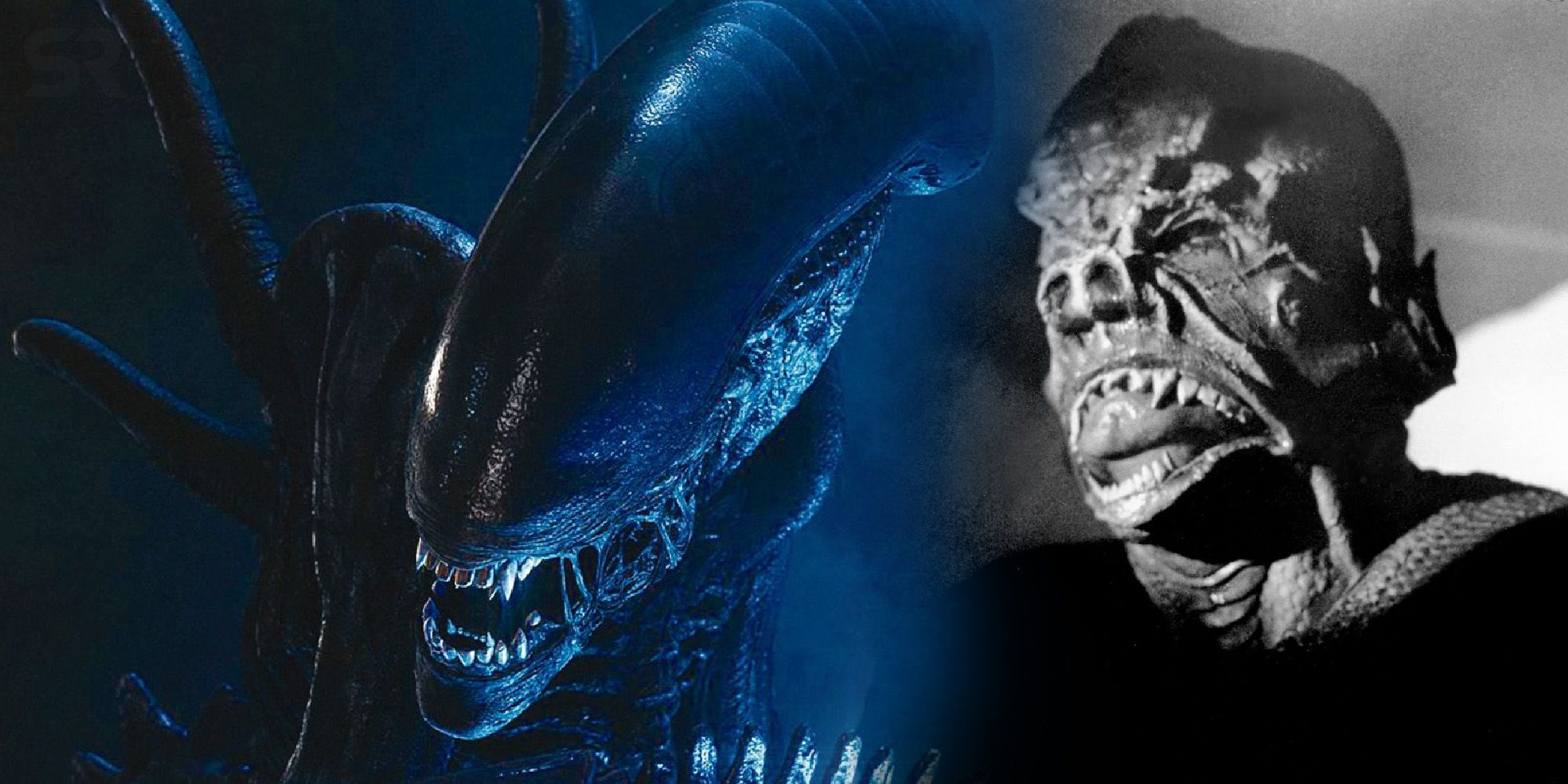
It! The Terror From Beyond Space isn’t a particularly memorable early sci-fi horror movie, but this long-forgotten obscuro did pave the way for Ridley Scott's Alien and arguably provided a blueprint for its story in the process. Notable for little else, the 50’s indie sci-fi It! The Terror From Beyond Space is strikingly similar to Blade Runner director Ridley Scott’s iconic 1979 horror sci-fi hit Alien in terms of both plot and premise. Winning critical acclaim upon release, Alien was seen by many viewers as an unholy fusion of earlier '70s blockbusters, Jaws and Star Wars.
Fusing the space-based setting of the latter with the creature feature terror of the former, Alien offered a gorier, scarier, and entirely original “haunted house in space” filmgoing experience, or so viewers thought. Based on the screenplay "Starbeast" by future Return of the Living Dead scribe Dan O’Bannon, Alien combined numerous creative visions that came together to create something truly spectacular, and eventually spawn a massive, multi-movie franchise.
Alien's unique look was credited to designer H.R. Giger, who created the eponymous xenomorph as well as its creepy home planet and the bizarre chamber viewers see early on in the film. The tense chase sequences set aboard the cramped Nostromo spaceship were shot by Scott, who is credited with Alien’s oppressive, dread-inducing atmosphere. Meanwhile, the premise of a crew of everyday working stiffs—instead of the idealistic sci-fi heroes of Star Wars and Star Trek alike—who encounter the titular threat on a routine job was devised by O'Bannon. However, there’s an earlier, mostly forgotten sci-fi movie with a surprisingly similar premise which seems to have served as an uncredited inspiration for the creators, as outlined below. Some of the influential Alien’s similarities from It! The Terror From Beyond Space could reasonably be a case of parallel thinking, but some of them are simply too egregious to ignore.
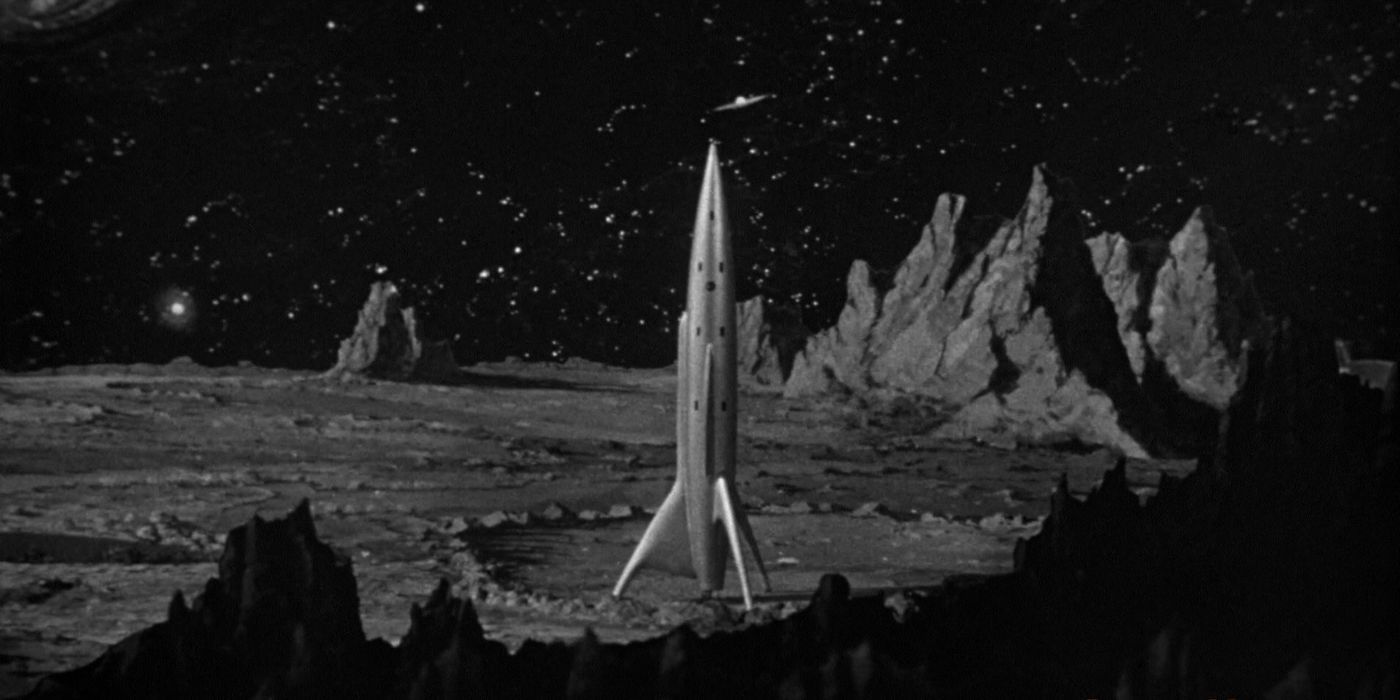
A gang of ordinary workers accidentally allow an alien stowaway onto their ship, prompting the monster to pick them off one-by-one until the surviving members eventually hunt it down and toss it in an airlock to rid themselves of the beast. Sound familiar? Both movies are undeniably jarringly similar at the level of log-line premise, but to be fair to Alien, the two movies do diverge in how the plot plays out. For one thing, the monster of It! The Terror From Beyond Space takes a while to appear, in classic monster movie fashion. The movie’s crew initially encounters a lone survivor of its attacks, who they are certain killed his crew mates, and is lying about the existence of a killer alien. It’s only after they take him aboard their vessel for questioning that the crew discovers he was not only telling the truth, but they’ve accidentally allowed the alien on board with them.
In Alien, the monster takes a more direct route aboard the ship, famously hitching a ride inside the ribcage of John Hurt’s unfortunate crew member before making a memorable entrance mid-meal via his chest cavity. There’s no survivor to warn Alien’s crew from venturing into the rocky planet they land on, although one might think common sense would be enough to put them off poking around inside the creepy Xenomorph eggs. That said, both movies do feature the crews picking up an alien interloper and not knowing about the addition until it's too late for some unfortunate cast members.
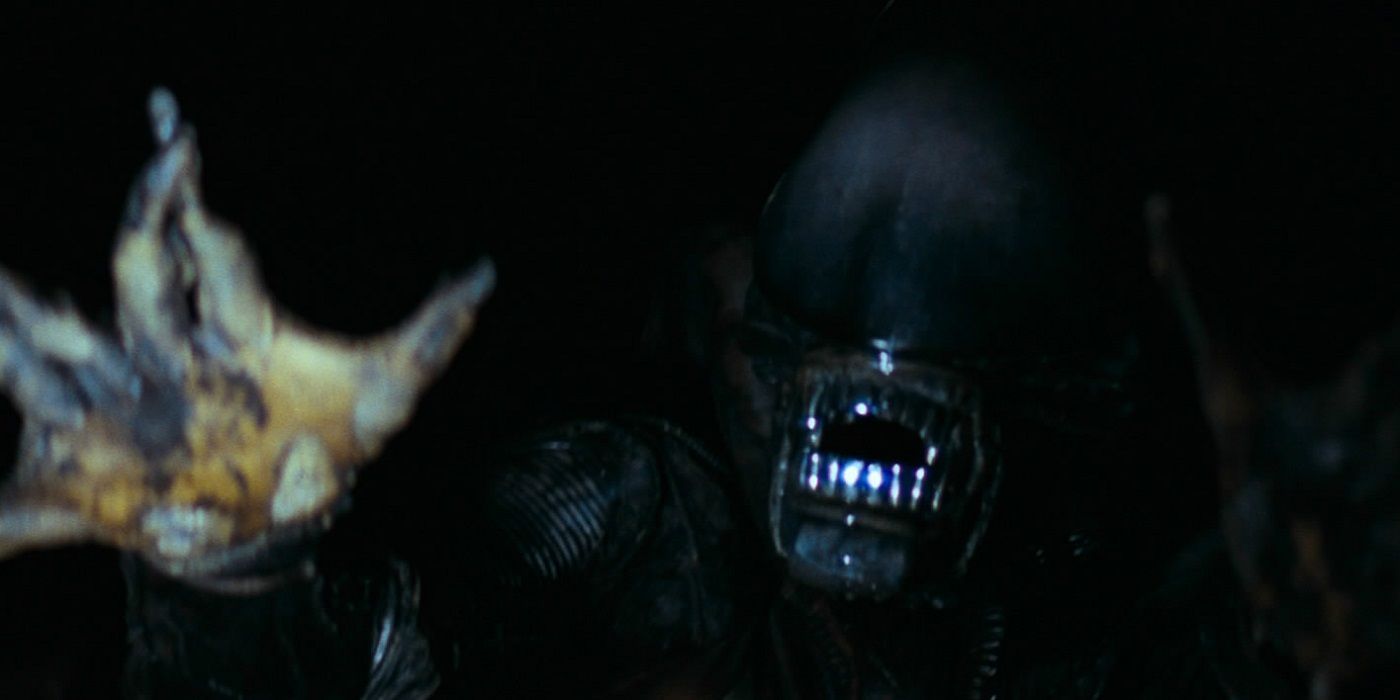
The alien’s specific method of evading detection and capture is also the same in both Alien and It! The Terror From Beyond Space, and while it might be more reasonable to suggest that the filmmakers came up with coincidentally similar pitches, this similarity is particularly striking. Both movie monsters manage to go unnoticed and, mercifully for It! The Terror From Beyond Space's limited effects budget, unseen for much of their respective movie's runtimes by traveling through the spaceship’s air vents. In both Alien and It! The Terror From Beyond Space said monster then kills an unfortunate character who follows them into the air vent, although this sequence is a lot more effective in Scott's movie, where it gives rise to one of the Alien franchise's most unforgettably effective jump scares.
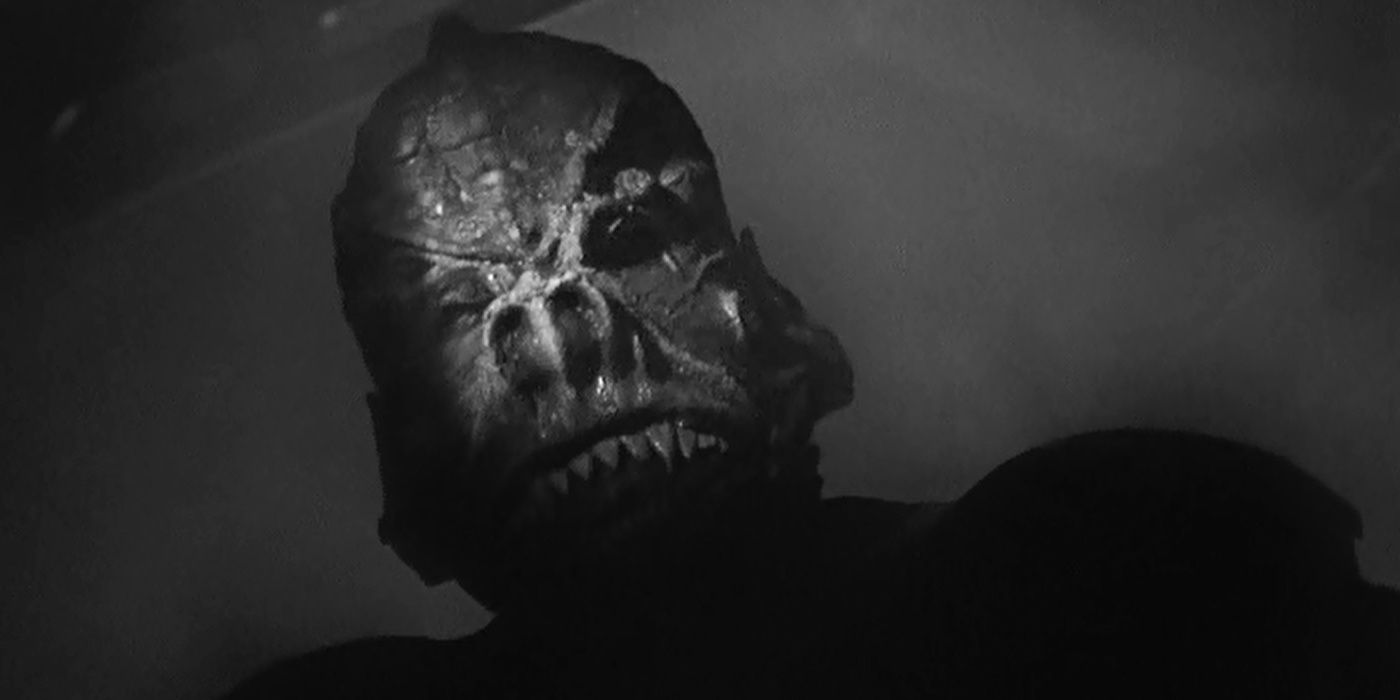
Both movies have almost identical endings, as both It! The Terror From Beyond Space and Alien’s monsters are trapped in airlocks in an attempt to suffocate them to death. Although, to be fair, this plan only works in the former movie. Nonetheless, both It! The Terror From Beyond Space and Alien see their action climax on scenes of the stars cornering the human-sized killer alien after a few less lucky crew members having been chewed through by their respective, titular threats. In both cases, the cast surmises that the thing can’t survive without a steady supply of oxygen. The rest is horror movie history as, while the crew of It! The Terror From Beyond Space is correct and successfully defeat the monster with this tactic, the cast of Alien aren’t so lucky, and end up whittled down to only Sigourney Weaver's Ellen Ripley by the time another successful plan to defeat the monster has arrived. In O’Bannon’s original script, not even Ripley survives.
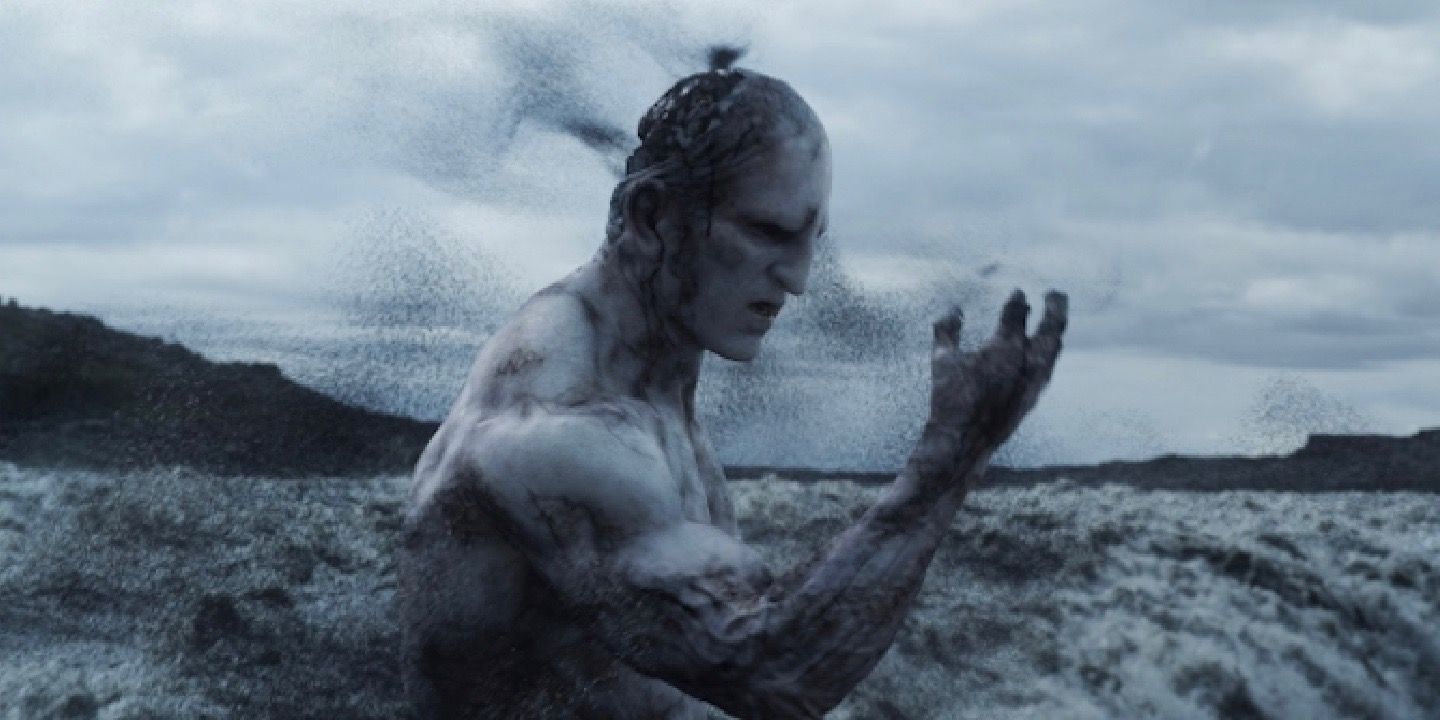
Of course, Scott’s movie is undeniably an original despite the apparent influence that It! The Terror From Beyond Space seems to exert over the basic outline of its action. Not only did Alien alter the ending, but it also featured the first appearance of the xenomorph, a memorable movie monster whose uniquely horrifying use of human bodies as a gestation chamber is a far scarier, gorier, and more inventive than anything that It! The Terror From Beyond Space was able to throw at audiences during the more demure 1950s. It's unlikely that later body horrors such as Galaxy of Terror or John Carpenter's classic, The Thing, would exist without this gruesome innovation that came from Alien's daring foray into extraterrestrial depictions.
Not only is the original Alien monster a lot scarier than the '50’s movie monster—and far better than its Newborn offspring from Alien Resurrection—but Scott's titular creature also came laden with a byzantine backstory that has kept the franchise going through multiple sequels, prequels, and crossovers. To be fair to Scott, O’Bannon, and Giger, the sheer amount of backstory and inventive additions made to the Alien series since 1979's original make it clear that Alien wasn’t a movie lacking in inspiration, even if it did borrow some elements from an earlier, cornier sci-fi horror movie.
from ScreenRant - Feed https://ift.tt/36Oi48U

No comments: